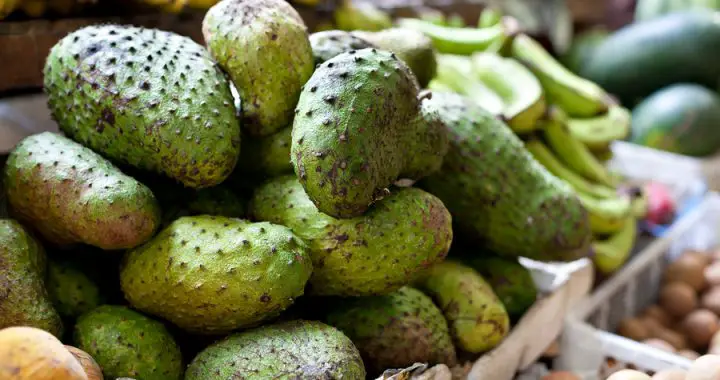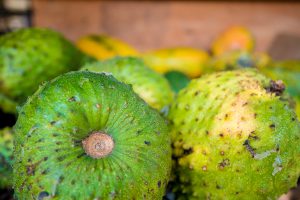Inflammation is the body’s natural response to removing harmful cells and irritants from the body. If there is something harmful in the body, the immune system responds with inflammation, attacking that portion of the body and working to heal it. Many people believe inflammation is a negative process within the body, but it works to fight infection and promote healing. When inflammation is chronic and widespread, it can wreak havoc on all the systems of your body.
Most people with chronic inflammation don’t realize they have a problem. Symptoms of chronic inflammation include:
- Fatigue
- Mouth sores
- Chest pain
- Fever
- Rash
- Joint pain
If you have chronic inflammation, you may only have one or two of these symptoms. It’s important to recognize when symptoms are present, as chronic inflammation can result in tissue thickening, scarring, and possible death of tissue.
Causes of Chronic Inflammation
A variety of issues can cause chronic inflammation. Autoimmune diseases, asthma, hepatitis, rheumatoid arthritis, osteoarthritis, and sinusitis are all common causes of inflammation. Diet, especially a western-style diet, also causes some inflammation. Common foods that lead to inflammation include sugars, fats, refined carbohydrates, monosodium glutamate, and foods that contain gluten.
If you think that you may have issues with chronic inflammation, you can consider using an elimination diet to determine what foods are causing issues for you. Lactose intolerance, gluten sensitivities, and food allergies can cause excess inflammation in the body.
Check with your dietitian, naturopath or doctor. Most recommend elimination diets contain fruits, vegetables, and brown rice. Adhere to this diet for a few weeks, and then begin to reintroduce other foods to see what causes issues. During this time, it’s also a good idea to introduce a regimen of soursop fruit and tea consumption.
Soursop as a Natural Anti-Inflammatory
Soursop (also known as the graviola tree, or guanabana in Spanish) has anti-inflammatory properties. South Americans have been using the plant for centuries to treat a variety of disorders. They treat every ailment from dysentery to eczema with the use of the graviola.
- Anti-inflammatory properties abound. In one study of soursop treatment in laboratory rats, it was found that the fruit decreased swelling and inflammation throughout the animal’s body. Another study showed similar results, which suggests a reduction in swelling of up to 37%. Yet another animal study showed that the fruit reduced the inflammatory markers that are present in patients with arthritis. The studies for using the fruit for medicinal purposes are remarkably promising.
- It’s high in antioxidants. Antioxidants are substances that help prevent cell damage that free radicals cause. Many research studies show antioxidants reduce chronic inflammation throughout the body. In test-tube studies, soursop extract has been found to protect against damage from free radicals. While the studies are continuing in humans, all signs currently point to the efficacy of soursop antioxidants in preventing inflammation.
- Bacteria-fighting qualities. One cause of inflammation is bacteria present in the body. Inflammation is a positive response to help the body heal, but at times the inflammation can be long term. This is when the condition is chronic, which can have detrimental effects on the body. One study revealed that irrigating a root canal with graviola is as effective as the use of current anti-bacterial washes. Soursop fruit has been shown to fight common bacteria, which will in turn speed the healing process and result in less inflammation.
- Anti-cancer activity. Chronic inflammation in certain areas of the body can lead to cancer, which is why it’s worth noting that soursop fruit and plant parts have been shown to have anti-cancer properties. In many studies, graviola extract was found to be toxic to some breast cancer and pancreatic cancer cells. Treatment options are promising, but extensive, long-term studies need to be performed to determine the effectiveness of graviola as a cancer treatment.
- Boosts immunity. Soursop is rich in vitamin C, which encourages the production of white blood cells that fight infection throughout the body. This, combined with the high rate of antioxidants in the fruit, can help prevent chronic inflammation. With a strong immune system, bodies are more capable of efficiently squelching bacteria and inflammation before they become a problem.
- Pain relief. Suffering from chronic inflammation can be painful. Outside inflammation in the forms of wounds and injuries can be soothed with the use of topical graviola products. Used for centuries as a wound ointment, native South Americans were well ahead of their time. For internal inflammation, the soursop plant and graviola leaves can reduce the associated pain and swelling. Often the inflammation itself is painful, but the swelling also causes secondary pain. Consuming the fruit can help lessen this pain.
Where Can I Find Soursop Fruit and the Graviola Plant in the United States?
Graviola grows primarily in South America, the Caribbean and in tropical Asia. The fruit is not found in abundance around the United States. As the plant’s healing properties become more well known, consumers can expect to see more of the fruit. However you can order it from http://soursopstore.com for shipping to all US addresses
Luckily, our company here in Florida can ship the fruit anywhere in the United States. We receive our inventory from farmers in the Caribbean, who ship the produce immediately upon harvest. Our company can then send the fruit to consumers with two-day delivery to ensure freshness. We offer a variety of soursop and graviola products, including:
- Graviola leaves and teas
- Soursop fresh fruit
- Soursop frozen puree
- Soursop syrup
- Soursop juice
- Graviola supplements
- Seeds to grow your own plants
We have products available to suit every preference. The product is guaranteed to be ripe and of the highest quality when it arrives. Many of our products can be consumed as is, but if you are interested in finding recipes for use with our products, visit our recipe section. If you are curious about the fruit, we would recommend beginning with an order of the fresh fruit, which many people enjoy on its own. We also recommend soursop leaves and tea products for the first-time buyer. All our teas are caffeine free to help you to relax, relieve anxiety, and begin your anti-inflammatory lifestyle.
Sources:
https://www.medicalnewstoday.com/articles/248423.php
https://www.ncbi.nlm.nih.gov/pmc/articles/PMC2885094/
https://www.healthline.com/nutrition/soursop-benefits#section6
https://www.ncbi.nlm.nih.gov/pubmed/27659082
https://aboutsoursop.com/category/recipes/






